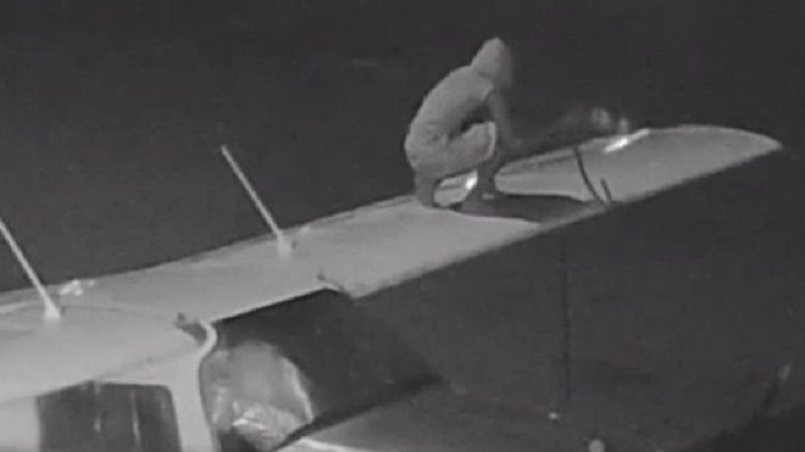
Australian health officials have warned of a "serious" incidence of children inhaling aviation fuel in the Northern Territory.
Security camera footage shows children breaking into the remote Elcho Island Airport and siphoning fuel from planes.
Petrol sniffing is not a new challenge to hit remote communities, but aviation fuel is even more dangerous because it contains lead, local officials said.
Lead exposure can badly damage the brain and nervous system.
Health officials believe more than 100 youths - one as young as seven - have inhaled the fuel on Elcho Island and a nearby area since March last year.
"Our kids are ending up in hospital by getting infected by chemicals, which is bad for them," one Aboriginal elder, John Gurrumgurrum Burarrwanga, told the Australian Broadcasting Corp.
Nine children and one adult have been taken to Darwin for treatment.
Miwatj Health chairman John Morgan said the situation was "serious and of concern".
"Our local teams, as part of the community, are working tirelessly to support the families and prevent further incidents," he said in a statement to the BBC.
Northern Territory government spokesman Jim Rogers said authorities would work hard to find practical solutions.
The government had already set aside A$70,000 (£40,000, $52,000) so a security officer could patrol Elcho Island Airport at night, he said.
"We are working closely with Miwatj, the health teams and community leaders to understand why this is occurring and to make sure that our efforts and services are targeted where they are most needed," Mr Rogers said.
Exposure to lead can cause profound and permanent health damage, especially to young children, according to the World Health Organization.
As well as damaging the brain and nervous system, lead also poses an increased risk of miscarriage, high blood pressure and kidney damage.
